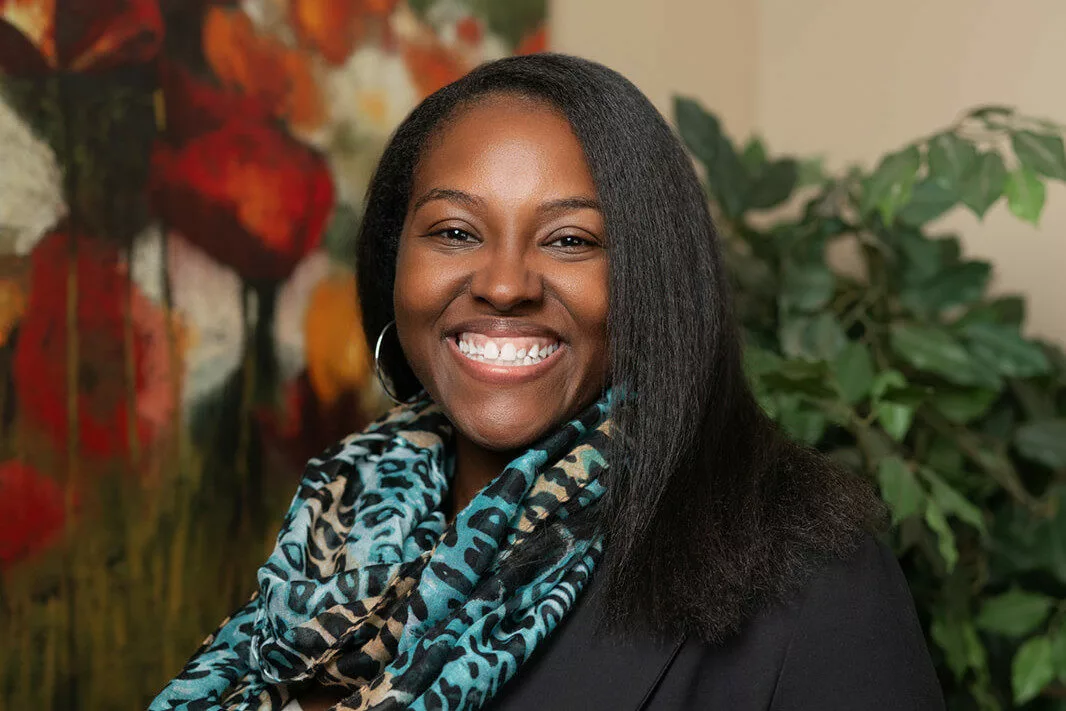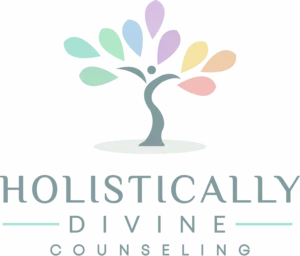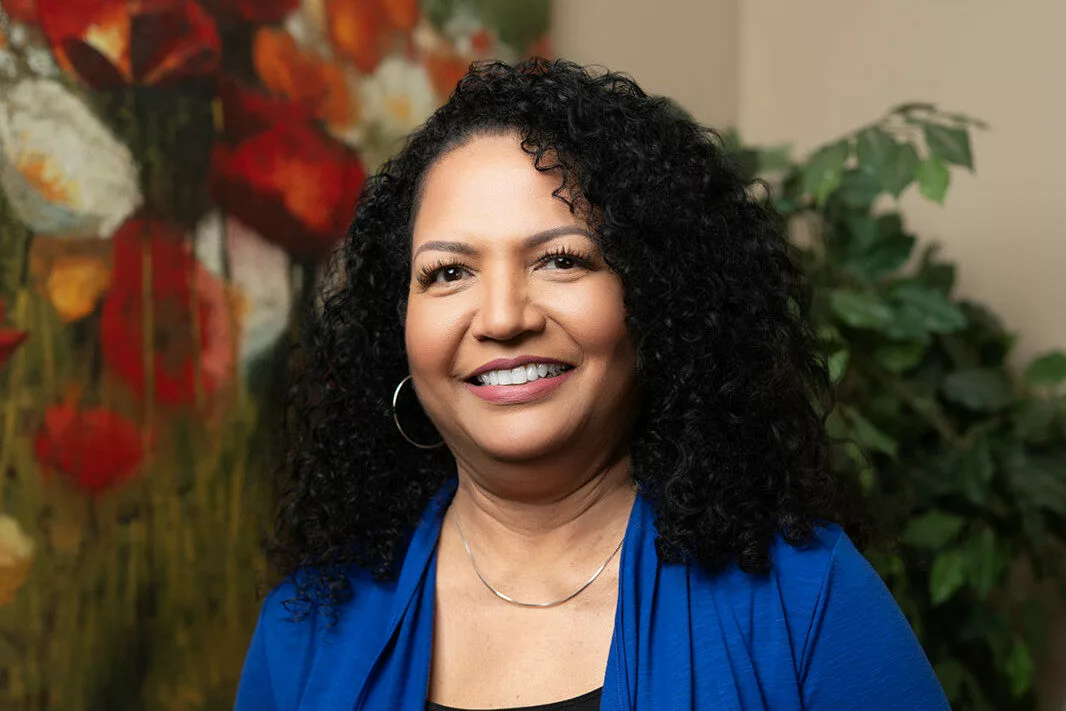Family Therapy
We offer space for rediscovering each other, learning healthier communication patterns, and moving forward together.

Family Therapy
We offer space for rediscovering each other, learning healthier communication patterns, and moving forward together.
-
-
-
-
-
-
-
-
- Virtual

Sherri S. Wick, MS, LCPC, NCC
Founder & Owner, Licensed Clinical Professional Counselor
At Holistically Divine Counseling (HDC), we believe that families are living systems. When one part of the system is hurting, the entire family feels the impact. Family therapy is an invitation to pause, reflect, and realign. This creates space for deeper connection, healthier communication, and shared healing. Our approach honors each person’s voice while strengthening the whole.
What is Family Therapy?
Family therapy is a collaborative process that helps families navigate conflict, improve communication, and build stronger relationships. Grounded in compassion and connection, this type of therapy explores how family dynamics influence individual well-being and how collective healing can occur through intentional, guided dialogue.
Defining Family Therapy and its Core Principles
At its core, family therapy is based on the idea that no one exists in isolation. Every thought, feeling, and action is shaped within the context of relationships.
Family therapy recognizes:
- The interconnectedness of emotional experiences
- The patterns that families unconsciously repeat
- The potential for growth through shared understanding
The Goals of Family Therapy
The primary goals of family therapy include:
- Creating a safe space to express needs and emotions
- Rebuilding trust and empathy
- Unpacking harmful communication patterns
- Navigating difficult transitions such as divorce, loss, or blending households
Benefits of Family Therapy
Addressing a Wide Range of Family Issues
At HDC, we understand that every family encounters unique challenges, and no issue is too big or too small to address in therapy. Family therapy supports healing through life transitions such as grief, divorce, relocation, or trauma, offering a steady anchor when everything else feels uncertain. It also provides space to navigate everyday struggles like parenting disagreements, behavioral concerns, or tension between siblings. Whether you’re a blended family learning to adjust roles, or a household experiencing ongoing disconnection, therapy helps each member feel seen, heard, and supported as you co-create healthier family dynamics.
Improving Communication and Understanding
When communication breaks down, the connection begins to erode. Family therapy helps transform conflict into conversation by teaching practical tools that lead to more peaceful interactions. It offers a safe space for family members to express themselves openly and honestly, reducing misunderstandings and restoring trust. Through guided dialogue, families learn to listen with curiosity instead of defensiveness and speak with clarity instead of criticism. As each person feels more understood, deeper empathy begins to replace frustration, and families start to experience one another in more compassionate and connected ways.
Strengthening Family Relationships and Bonds
Therapy can not only help resolve problems, it can also help you rediscover one another. Family therapy invites families to rebuild the foundation of respect, empathy, and joy that may have been lost in the chaos of life. It encourages each member to share their story, honor one another’s differences, and nurture meaningful connections across generations. As communication strengthens and emotional safety is restored, trust is rebuilt and bonds deepen. The result is that families learn to show up for each other in new, life-giving ways.
Developing Healthier Coping Mechanisms
Stress, change, and emotional overwhelm can take a toll on families, especially when coping strategies are reactive rather than responsive. Family therapy at HDC helps you press pause and reflect on what’s not working, while developing new ways of coping that are rooted in awareness and intention. Parents and caregivers, in particular, find support in learning how to model resilience, regulate their own emotions, and respond thoughtfully to their children’s needs. Together, your family learns how to move through challenges without repeating painful patterns and building strength, flexibility, and emotional health as a unit.
Techniques Used in Family Therapy
At HDC, we use intentional, evidence-based techniques designed to help your family reconnect, reframe, and realign. These approaches are doorways to deeper understanding and lasting transformation.
Communication Skills Training
Communication is the heart of every family system. Yet, during seasons of stress, it’s often the first thing to unravel. Our communication skills training goes beyond surface conversation. We guide families in learning how to speak with clarity, listen with empathy, and engage with intention.
This training helps shift communication from reactive to responsive. We explore how to express needs without blame, set boundaries with respect, and navigate disagreements without causing emotional harm. The result is a home environment where every voice matters and connection becomes the default, not the exception.
Role-Playing and Enactments
Sometimes, the best way to break old patterns is to practice new ones. Through role-playing and enactments, families get the opportunity to rehearse different ways of responding to real-life challenges before they arise again. These sessions are gently guided, allowing each family member to try on new behaviors, practice difficult conversations, and explore emotions in a safe, supportive setting.
These moments are powerful because they’re not performative, they’re intentional. They allow families to witness one another’s efforts and begin building new patterns of interaction based on compassion, curiosity, and care.
Genograms and Family Mapping
Every family carries a story, and sometimes that story spans generations. Genograms and family mapping are powerful tools we use to help you visually explore your family’s structure, roles, emotional patterns, and relationship dynamics.
By mapping out these connections, we bring awareness to inherited behaviors, unspoken rules, or cycles that may still be influencing your family today. This process helps uncover the “why” behind certain conflicts or feelings, making space for understanding, and ultimately, change. When you can see the full picture, healing no longer feels like guesswork. It becomes a guided journey.
Reframing and Positive Connotation
One of the most transformational tools in therapy is reframing, which is the art of looking at the same situation through a new lens. Instead of seeing resistance, we may uncover protection. Instead of conflict, we may see unmet needs. Through positive connotation, we help family members move from blame to curiosity, and from frustration to empathy.
This shift in perception reveals what’s underneath. By humanizing one another’s actions and reactions, families begin to reengage with softness, respect, and the possibility of repair. The focus is on uncovering what’s possible when we assume the best in one another.
What to Expect in a Family Therapy Session
Assessment and Goal Setting
The first family therapy session is focused on getting to know your family’s story. Together, we explore what brings you to therapy, how each member experiences current challenges, and what you hope to shift moving forward. This session is collaborative, and we don’t view one person as “the problem,” but rather, we explore the patterns and roles that may be keeping the family stuck.
We’ll also begin to identify your shared goals and household values, which serve as anchors for the work ahead. Whether the goal is improving communication, navigating a loss, or building trust, we ensure each voice is heard and each perspective honored.
Typical Session Structure and Dynamics
Family sessions may include the whole family or sub-groups (e.g., parents only, siblings together, caregiver and child). Your clinician will guide the conversation with gentle structure, using interventions like reflective questioning, role-play, or family mapping—depending on the goals and the dynamics present.
Our clinicians create a non-judgmental environment where even difficult conversations become opportunities for healing. Sessions balance safety with accountability, and honesty with hope. Over time, families begin to practice new ways of relating and responding to one another, building emotional safety and trust.
Frequently Asked Questions About Family Therapy
Schedule your free 15-minute consultation today to learn how to reconnect, heal, and build stronger, more supportive relationships. Holistically Divine Counseling offers in-person family therapy in Oswego, IL and virtual sessions across Illinois.









